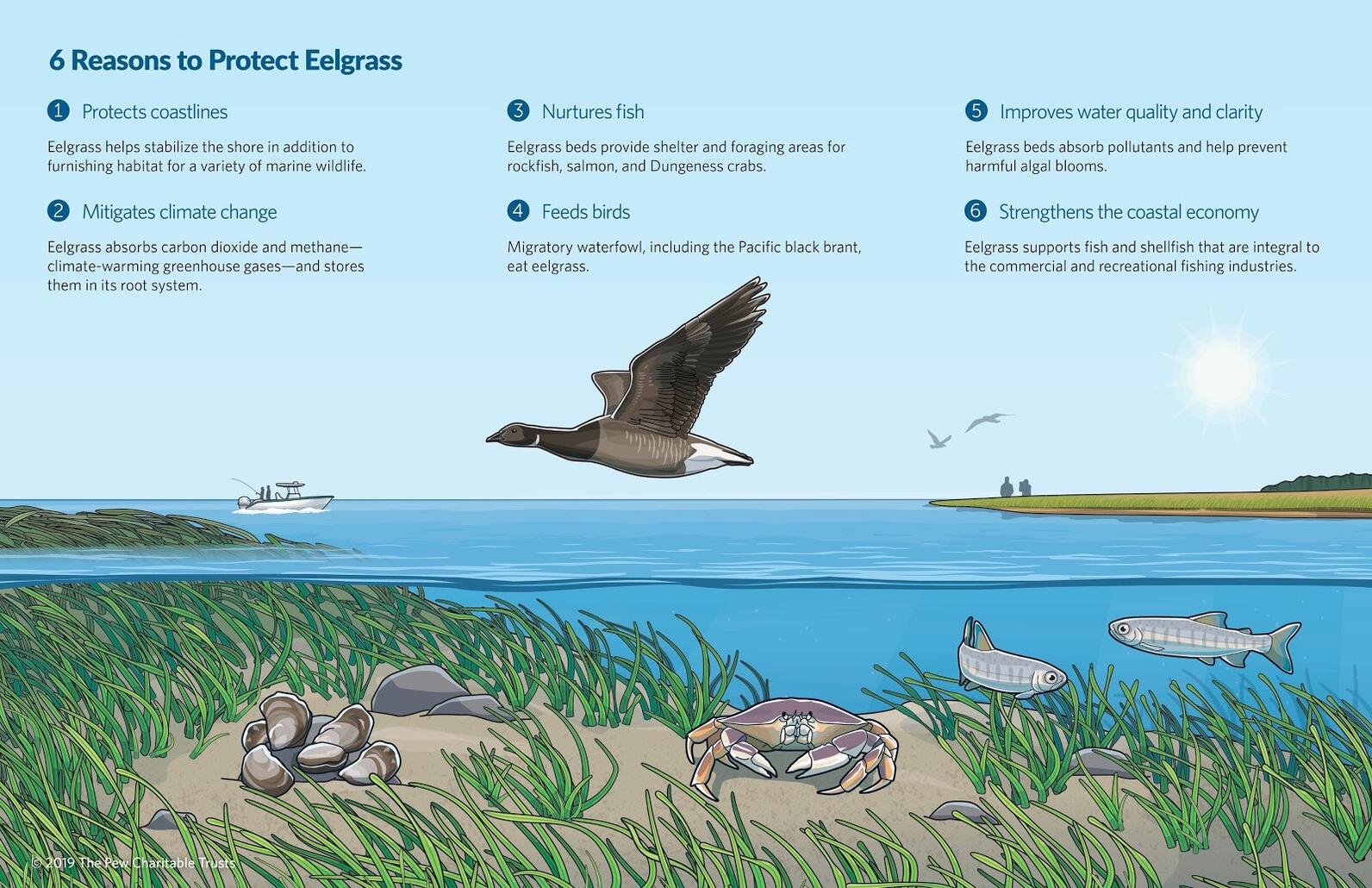Lesser Scaup
Latin: Aythya affinis
An important food source for waterbirds.
Eelgrass Photo: Eric Heupel
No matter where you live, chances are you and your family are benefiting from eelgrass. This beautiful plant provides dozens of ecosystem services and provides essential habitat for coastal birds.
Eelgrass on the U.S. West Coast is a member of the family of sea grasses called Zosteraceae and belongs to the higher taxonomic group of flowering plants called angisosperms. The blades of eelgrass are similar to those found in common grass species and depending on the zone, these could grow up to 4 feet in length.
As a crucial nursery habitat for crabs, salmon, and other wildlife, eelgrass boosts the economies of our coastal communities through fisheries and tourism. Healthy eelgrass beds also clean and filter water, absorb climate-warming carbon, and act as natural buffers to protect the coastline during storms.
Within San Francisco Estuary, Richardson Bay stands out as a particularly unique location for eelgrass restoration. It harbors the second-largest extant eelgrass bed in the estuary, and plants with the most genetic diversity of six beds sampled. Further, a model of environmental conditions in the estuary has identified Richardson Bay as the area with the greatest area suitable for restoration (Merkel and Associates 2004). Hence, Richardson Bay is highly valued both for its existing eelgrass resources and its potential for restoration.
Read All About Eelgrass in this downloadable fact sheet in English and Spanish.

What is eelgrass?
What animals rely on eelgrass?
Why should you care about eelgrass?
Audubon is advancing nature-based strategies to help coastline communities weather the impacts of climate change.
The Richardson Bay Audubon Center & Sanctuary is a remarkable slice of nature on the shores of the San Francisco Bay.
San Francisco Bay is an ecologically rich estuary, significant for its large eelgrass beds, spawning areas for Pacific herring, and tens of thousands of wintering waterbirds and other wildlife. Each winter, waterbirds migrate to the waters in and around the Richardson Bay Wildlife Sanctuary to rest in the calm waters and feast on herring.
Audubon California is committed to protecting the birds and habitat of the San Francisco Bay.
Restoring the vital native plant requires hard work and cold water.
Our newsletter is fun way to get our latest stories and important conservation updates from across the state.
Help secure the future for birds at risk from climate change, habitat loss and other threats. Your support will power our science, education, advocacy and on-the-ground conservation efforts.
California is a global biodiversity hotspots, with one of the greatest concentrations of living species on Earth.